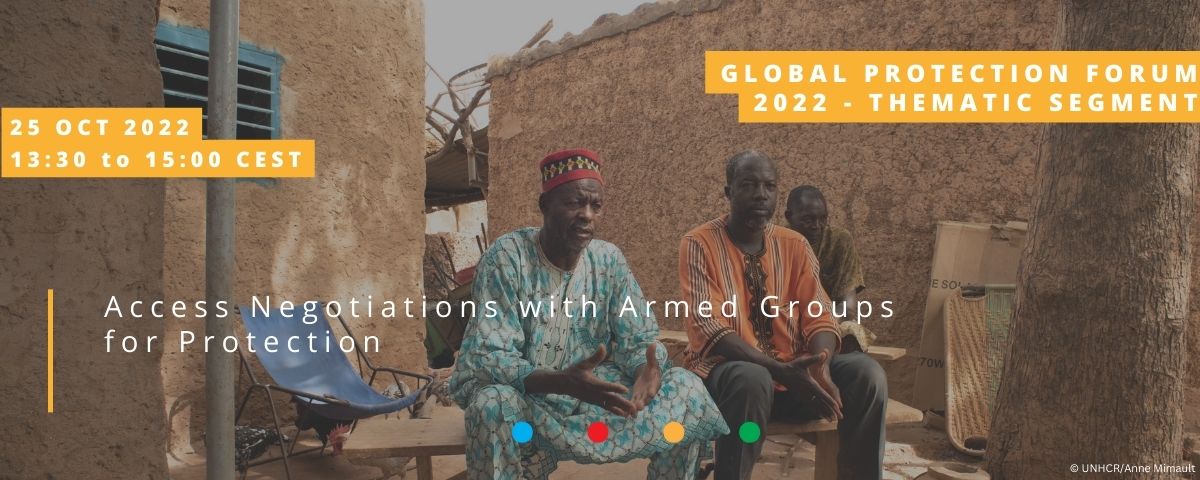Millions of people live in areas under the control or influence of armed groups, often in dire need of not only life-saving assistance, but also protection. Without quality access for protection, their lives, dignity, livelihoods and rights are endangered.
In this session led by Geneva Call, panellists will explore how to conceptualise and design access negotiations with armed groups to ensure that the specific protection risks faced by the civilian population are addressed. The discussion will be guided by the following questions:
- What are the different approaches to access negotiations with armed groups for protection purposes? Are there any differences depending on whether the focus is on assistance or protection?
- In many contemporary armed conflicts, there are multiple armed groups active in the same area with shifting alliances, leading to a complex, multi-layered and fast developing operational context for access negotiations. What strategies and approaches exist or could be developed for access negotiations for protection with armed groups in such complex environments?
- How do we see the linkages between improved access to essentials services for the civilian population and increased protection, for example in terms of creating an enabling environment that reduces the need for humanitarian assistance through the protection of infrastructure, local economies and livelihoods?
- How do we see the role played by local communities and CSOs in such access negotiations?
- How can local capacities be better integrated into access negotiations?
The session is expected to increase the shared knowledge as well as identify good practices and approaches to overcome challenges of access negotiations with armed groups for protection, including in complex operational environments with a multitude of armed groups. It aims to provide concrete field experiences to frame how access negotiations can be conceptualized and designed for protection.
Simultaneous interpretation is available in French, Spanish and Arabic.


